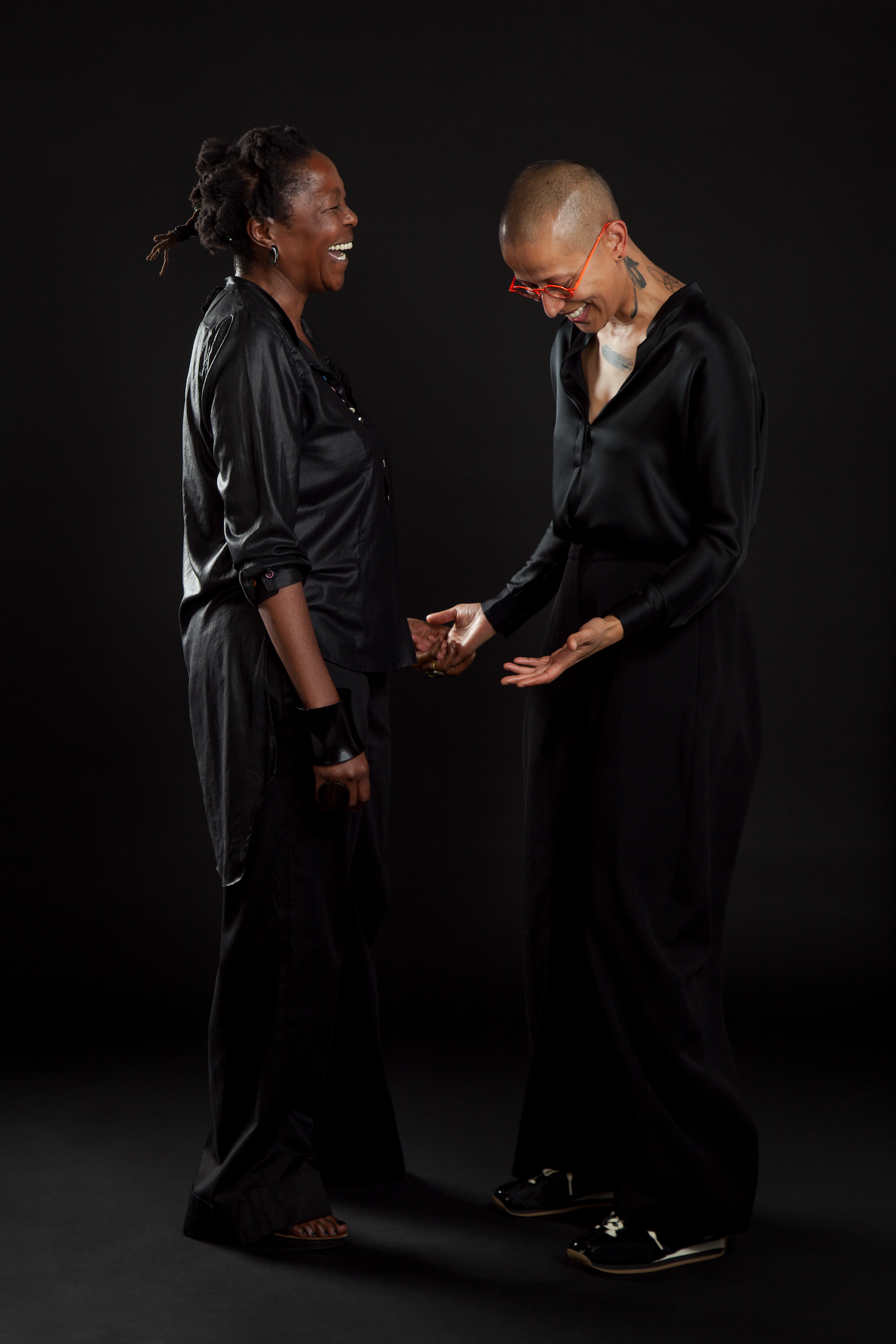Gabrielle Goliath & Ingrid Masondo, photo by ZUNIS
“The single note in Elegy is equal parts clarion call and durational rejection of mourning’s expected temporality. The performativity of Goliath’s practice lies in its metabolic urgency: its response to the necrographic commitment to one another, and to the dead whose memory comprises the shared memorial responsibility of the living.”
Zoé Samudzi
Mousse Magazine
…
“Conceived as an act of collective ritual mourning in response to the murder of journalism student Ipeleng Christine Moholane, the work epitomises Goliath’s conceptually profound yet tender approach to one of the most harrowing realities of life in contemporary South Africa: the prevalence of gender-based violence.”
…
“Elegy is wound and medicine when mourning itself is under threat.”
Christina Sharpe
& Rinaldo Walcott
Hyperallergic
____
The copyright for any material published on this website is reserved. Any duplication or use of objects such as images, videos, sound files and texts is not permitted without the written agreement of Studio Goliath | contact

Gabrielle Goliath & Ingrid Masondo, photo by ZUNIS